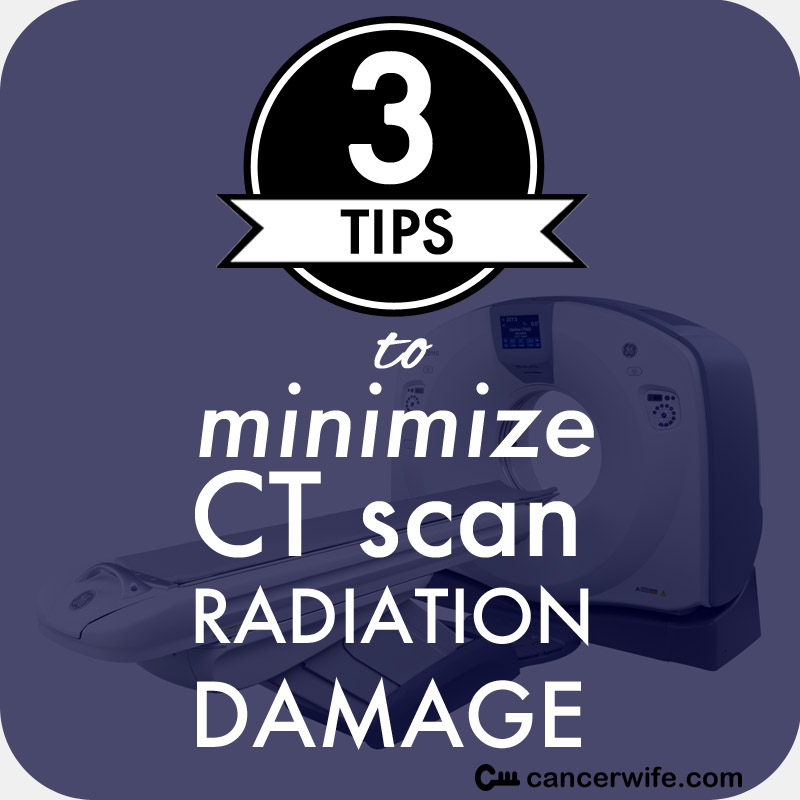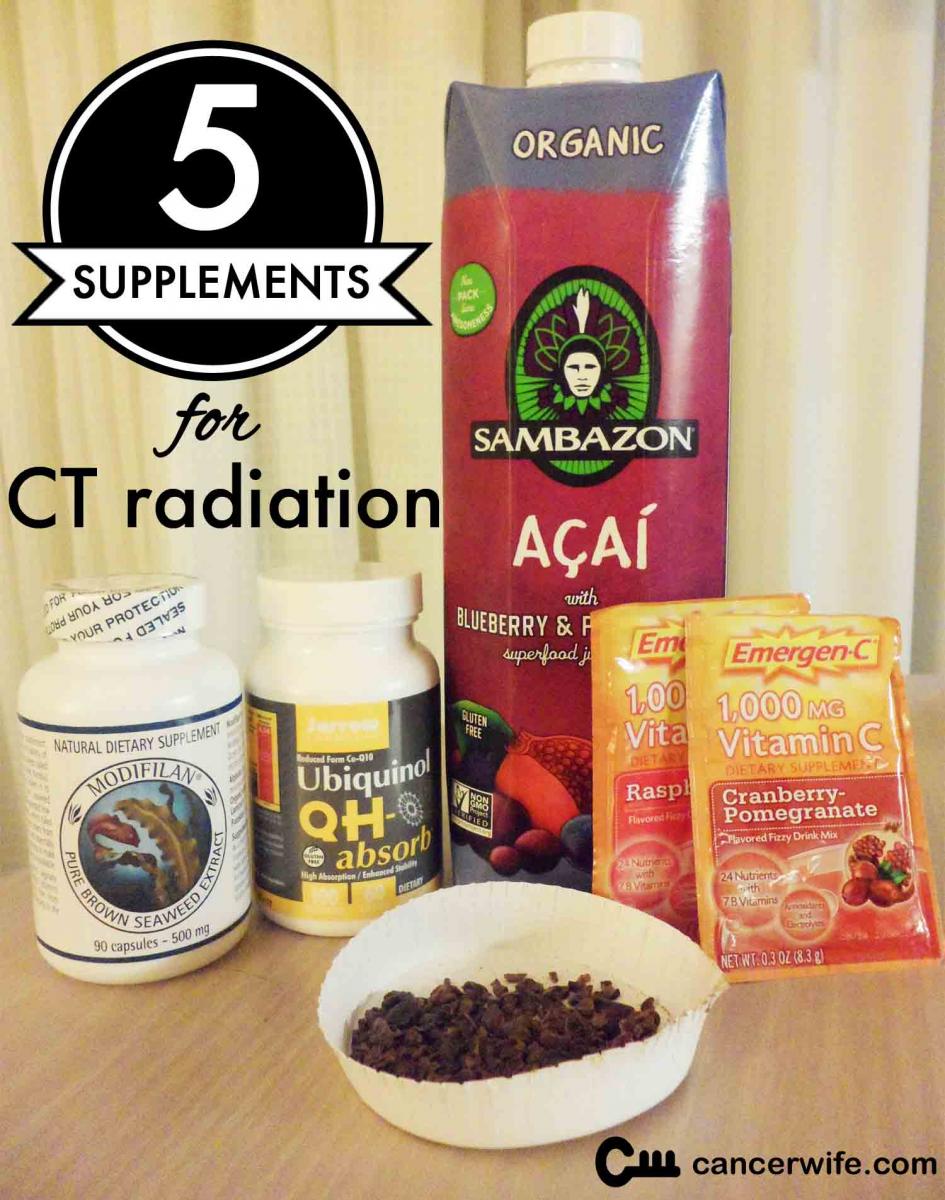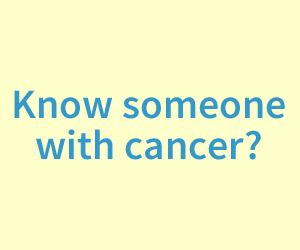How to Minimize CT Scan Radiation Damage
 One major concern with CT scans is the radiation damage it can cause.
One major concern with CT scans is the radiation damage it can cause.
This becomes more of an issue when you get frequent CT scans, as in the case of routine cancer monitoring. Ever since I was diagnosed, I have had an average of 4 chest CT scans each year.
How much radiation do I get from a CT scan?
Radiation Doses from Various Medical Imaging Procedures [1]
Type of Scan | Equivalent number of Chest X-rays | Radiation dose (mSv) |
Dental X-ray | 0.25-0.50 | 0.05-0.1 |
Chest X-ray | 1 | 0.02 |
Mammogram | 20 | 0.40 |
CT | 100-800 | 2-16 |
- The larger the area scanned by CT, the more radiation.
- If the CT scan is done with contrast and without contrast, the area will be scanned twice, and thus, the radiation doubles.
What risk does a CT scan pose?
Radiation is very high energy that can cause damage to DNA. If the damage to DNA is not repaired correctly, mutations can arise that lead to cancer.
Children are more sensitive to radiation damage. In a study of children who had CT scans, the risk of getting leukemia was 3 times higher when the cumulative radiation dosage to the bone marrow was at least 30mSv, and the risk of getting brain cancer was 3 times higher when the cumulative radiation dosage was at least 50mGy. [2]
"Doctors estimate that the increased risk of cancer over a person's lifetime from a single CT scan is very small, only 0.03% to 0.05%." [1]
What can be done to minimize radiation damage from CT scans?
Since the radiation from CT scans has no healing benefit, it is best to try to minimize the radiation damage during scans.

1) Ask for a low-dose CT scan.
Low-dose CT scans are calibrated so that the resolution of the scan is good enough to detect tumor or the health issue at hand. A low-dose CT chest scan has an effective radiation dose of 1.5mSv, as compared to 7mSv in a normal CT chest scan. [3]
Nowadays, hospitals are more aware about minimizing radiation from scans, so often CT scans are automatically low-dose. It doesn't hurt to ask the doctor ahead of time for a low-dose CT scan.
2) Ask for a CT scan without contrast.
If your health issue is identifiable on CT with no contrast, this is a possible way to decrease the radiation you receive. When the CT scan is done with contrast, you get scanned twice - once without the contrast, and once with contrast. The amount of radiation you receive will thus double.
For example, I get a CT scan with no contrast because of my contrast allergy, and it shows lung tumors just fine. I have to say though, that if I didn't have a CT contrast allergy, my doctor would prefer the CT scan with contrast because tumors are picked up more readily.
3) Take supplements to counteract the radiation damage.
 Radiation causes oxidative damage, which can damage DNA. Theoretically, taking antioxidants will counteract the oxidative damage. In addition, Modifilan has been used by Chernobyl survivors to counteract their severe radiation damage.
Radiation causes oxidative damage, which can damage DNA. Theoretically, taking antioxidants will counteract the oxidative damage. In addition, Modifilan has been used by Chernobyl survivors to counteract their severe radiation damage.There is no good way to measure whether radiation damage is quelled by these supplements, but with the many CT scans I receive each year, I feel pretty comfortable with this set of supplements to minimize radiation damage.
Usually you cannot drink non-clear liquids or eat 3 hours before the CT scan, so I take this set of supplements 2 times: the day before and right after the CT scan.
CancerWife's CT Scan Supplements
Food/ Supplement, dosage | Purpose |
a handful | antioxidant |
2 cups | antioxidant |
2 packets | antioxidant |
6 pills | antioxidant |
6 pills | antioxidant and anti-inflammatory [4] |
References:








